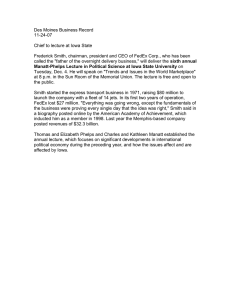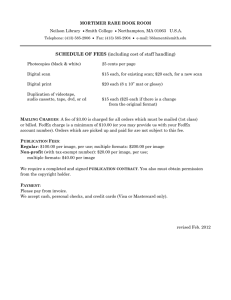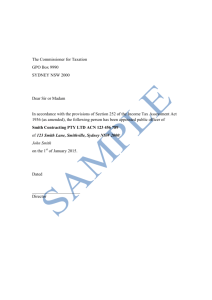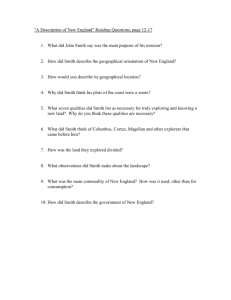Fred Smith
advertisement
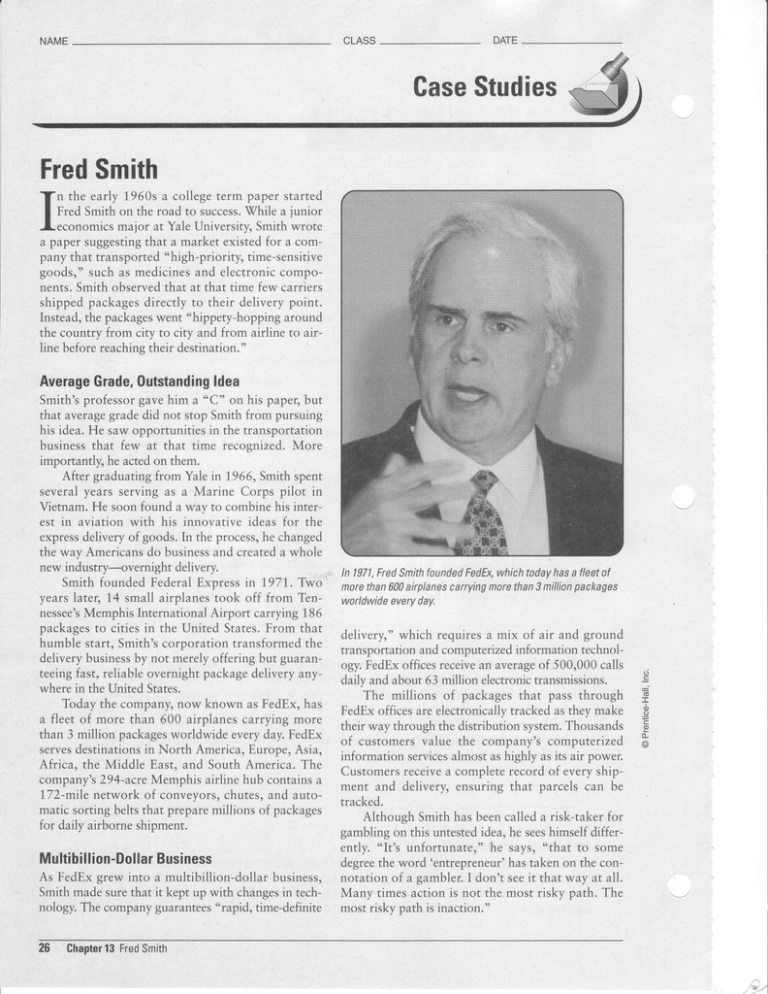
FredSmith J n t h e e a r l y 1 9 6 0 s a c o l l e g et e r m p a p e r s t a r t e d junior I Fred Smith on the road to success.!7hile a Ieconomics major at Yale University, Smith wrote a paper suggestingthat a market existed for a company that transported "high-priority, time-sensitive goods," such as medicines and electronic components. Smith observed that at that time few carriers shipped packages directly to their delivery point. Instead, the packageswent "hippety-hopping around the country from city to city and from airline to airline before reaching their destination." Average ldea Grade, 0utstanding Smith'sprofessorgavehim a "C" on his paper,but that averagegradedid not stop Smithfrom pursuing his idea.He saw opportunitiesin the transportation businessthat few at that time recognized.More importantlg he actedon them. After graduatingfrom Yalein 1966,Smithspent severalyears servingas a Marine Corps pilot in Vietnam.He soonfound a way to combinehis interest in aviation with his innovative ideas for the expressdeliveryof goods.In the process,he changed the way Americansdo businessand createda whole new industry-overnight delivery. Smith foundedFederalExpressin 1977. Two yearslater, 14 small airplanestook off from Tennessee's MemphisInternationalAirport carrying186 packagesto citiesin the United States.From that humblestart, Smith'scorporationtransformedthe deliverybusinessby not merelyofferingbut guaranteeingfast, reliableovernightpackagedeliveryanywhere in the United States. Today the company,now known as FedEx,has a fleet of more than 600 airplanescarrying more than 3 million packagesworldwide everyday.FedEx servesdestinationsin North America,Europe,Asia, Africa, the Middle East, and South America.The company's294-acteMemphisairlinehub containsa 172-mlIenetwork of conveyors,chutes,and automatic sortingbeltsthat preparemillions of packages for daily airborneshipment. whichtoday hasa fleetof tn 1971, FredSmithfoundedFedEx, morethan600airplanescarryingmorethan3 nillion packages worldwideeveryday. delivery," which requires a mix of air and ground transportation and computerized information technology. FedEx offices receivean averageof 500,000 calls daily and about 63 million electronic transmissions. The millions of packages that pass through FedEx offices are electronically tracked as they make their way through the distribution system.Thousands of customers value the co,mpany's computerized information servicesalmost as highly as its air power. Customers receive a complete record of every shipment and delivery, ensuring that parcels can be tracked. Although Smith has been called a risk-taker for gambling on this untested idea, he seeshimself differently. "It's unfortunate," he says, "that to some Multibillion-Dol larBusiness degreethe word 'entrepreneur' has taken on the conAs FedExgrew into a multibillion-dollarbusiness, notation of a gambler. I don't see it that way at all. Smith madesurethat it kept up with changesin tech- Many times action is not the most risky path. The nology.The companyguarantees"rapid, time-definite most risky path is inaction." 26 13 FredSmith Ghapter c G I o E E o o- o
